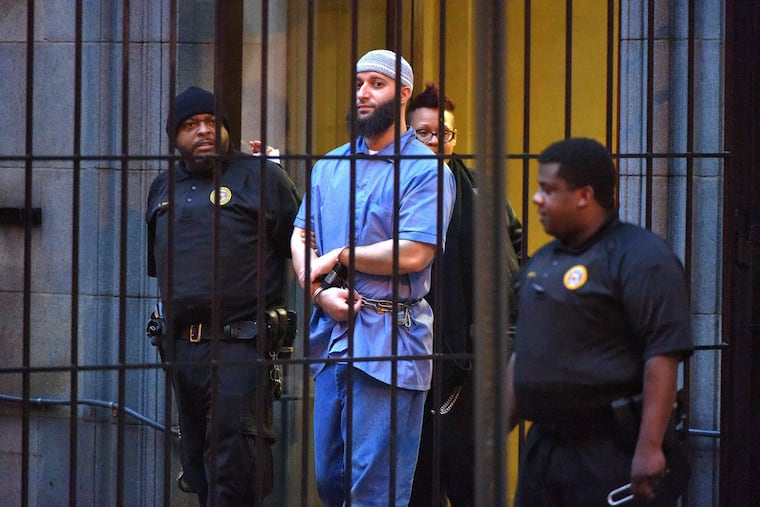Baltimore judge orders new DNA testing in Adnan Syed murder case featured in ‘Serial’ podcast
Together, Syed’s attorney and Baltimore prosecutors asked last week for the court to consider new postconviction DNA testing.

BALTIMORE — Clothing, shoes and other pieces of evidence collected in the infamous Baltimore murder case against Adnan Syed will be sent off to a California lab for new DNA analysis, a city judge has ordered.
Together, Syed’s attorney and Baltimore prosecutors asked last week for the court to consider new postconviction DNA testing, arguing that the results could help settle Syed’s long-standing claims of innocence in the 1999 murder of Hae Min Lee.
Lee was strangled to death and discovered in a clandestine grave in Leakin Park. Police and prosecutors maintained that Syed, her ex-boyfriend, was culpable for her killing. He stood trial twice for her murder and was convicted in 2000 and sentenced to life in prison plus 40 years. Syed is incarcerated at the state’s Patuxent Institution in Jessup. He has appealed multiple times and has always maintained he is innocent.
Circuit Judge Melissa Phinn’s order Monday requires Baltimore police to send a handful of items recovered in the investigation to the Forensic Analytical Crime Lab in Hayward, California, within 15 days.
While the judge deferred to the lab’s experts and Syed’s lawyer to determine the type of DNA analysis, she said the testing must be conducted in a manner “generally accepted in the scientific community for forensic criminal identification.” The results will be run through the FBI’s criminal justice DNA databases, known as CODIS, or the Combined DNA Index System.
Phinn’s order marks the latest twist in a more-than-two-decade legal saga that was propelled to international prominence when it was examined by the hit podcast “Serial ” beginning in 2014. Other podcasts and an HBO series brought more attention to Syed’s case.
Syed’s lawyer, Erica J. Suter, director of the University of Baltimore Innocence Project Clinic, argued in the joint motion with prosecutors that the absence of her client’s DNA on the items tested could persuade a judge or jury that Syed didn’t commit the murder. She asked for touch DNA analysis, as well as examinations to determine whether a profile can be identified and to test for the profiles of people born as men.
Touch DNA refers to the forensic footprint, skin cells or bodily fluids, one leaves behind when they touch something.
Results can be interpreted to different effects, however. The Maryland Office of the Attorney General in 2018 oversaw the DNA analysis of evidence in Syed’s case — fingernail clippings, blood samples and a condom — and none of the samples tested positive of Syed. His lawyers argued that was proof he didn’t kill Lee, while prosecutors said it didn’t prove anything.
Items being tested under Phinn’s order weren’t tested during the attorney general’s review.
The idea for the latest testing came up when Suter contacted the Baltimore state’s attorney’s office’s Sentencing Review Unit about Syed’s case this past spring after the state passed a law enabling those convicted of crimes as youths to petition for a sentence modification. In that review, city prosecutors agreed that forensic analysis unavailable at the time of Syed’s trial would be appropriate for his postconviction claims.
DNA analysis has come a long way during the past 23 years, experts say. The analysis used to require a large sample to identify a profile; over time, the tests became more and more sensitive.